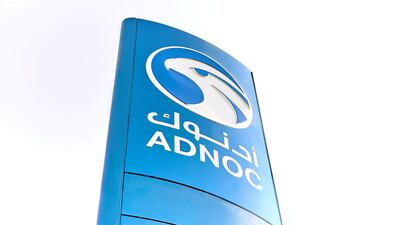The Abu Dhabi National Oil Company (Adnoc) signed a Memorandum of Understanding on Thursday with the Linde Group of Germany to explore the expansion of nitrogen facilities in Ruwais, under the auspices of its Adnoc Linde Industrial Gases joint venture.
Linde, which has partnered with the oil company since 2007, will carry out a Front-End Engineering and Design (Feed) study for new air separation units, which are intended to satisfy the expanding nitrogen requirements of Adnoc's gas processing, petrochemicals and refining businesses. Further steps will follow as the two companies grow together to meet expected demand for industrial gases from Adnoc's downstream businesses.
The agreement was signed on the final day of the Abu Dhabi International Petroleum Exhibition and Conference (Adipec).
_________________
Read more:
Adnoc strikes new framework agreement with China National Petroleum Corporation
UAE’s oil minister optimistic over extension of production cut
_________________
"In line with its 2030 smart growth strategy, Adnoc plans to expand and diversify its downstream refining and petrochemicals activities, while also optimising efficiency and costs," said Abdulaziz Al Hajri, downstream director at Adnoc.
"As part of our strategic plan to increase volumes of industrial gases, the Ruwais Air Separation Unit Project will be carried out in two phases, each with the capacity to produce 70,000 cubic meters per hour of nitrogen."
Adnoc Industrial Gases produces gaseous nitrogen, liquid nitrogen and liquid oxygen at its sites in Abu Dhabi.
The agreement with Linde comes the day after Adnoc and Spanish oil and gas firm Cepsa agreed to study plans to build a world-scale linear alkyl benzene (LAB) complex at Ruwais, to be integrated with Adnoc’s refinery facility, amid further discussions between the two firms on future collaborations in upstream and downstream projects.
Also known as detergent alkylate, LAB is the most common chemical compound used in the manufacture of biodegradable household and industrial detergents.
The facility at Ruwais is expected to have a planned production capacity of 150,000 tonnes and is expected to start up in 2021, with exports aimed at Indian and South East Asian markets.
The companies are expected to commence basic engineering of the proposed chemical facility in 2018.

